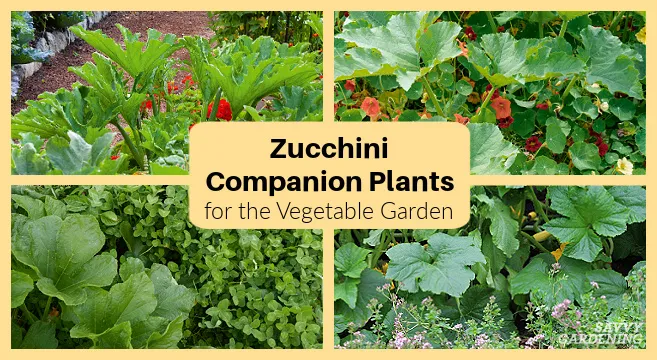
Zucchini Companion Plants: Enhancing Growth and Health in Your Garden
Zucchini, a popular summer squash, is known for its high yield and versatility in the kitchen. However, to maximize its growth and health, companion planting is an effective strategy. Companion planting involves pairing plants that benefit each other in various ways, such as pest control, improved pollination, and enhanced growth. This article explores the best companion plants for zucchini, their benefits, and how to effectively implement companion planting in your garden.
Understanding Companion Planting
Companion planting is based on the idea that certain plants can enhance each other’s growth, deter pests, and improve overall garden health. This practice has been used for centuries by gardeners and farmers worldwide. The benefits of companion planting include:
- Pest Control: Certain plants can repel pests that commonly affect zucchini, such as aphids, squash bugs, and cucumber beetles.
- Pollination: Some companion plants attract pollinators, which are essential for the fruiting of zucchini.
- Soil Health: Companion plants can improve soil fertility and structure, benefiting heavy feeders like zucchini.
- Weed Suppression: Dense planting can help reduce weed growth by shading the soil and competing for resources.
Best Companion Plants for Zucchini
Here is a detailed look at some of the best companion plants for zucchini, including their roles and benefits:
| Companion Plant | Role | Benefits |
|---|---|---|
| Tomatoes | Vertical Growth | Provides shade for soil moisture retention; attracts pollinators. |
| Nasturtiums | Pest Deterrent | Attracts aphids away from zucchini; edible flowers add beauty and flavor. |
| Marigolds | Pest Deterrent | Repels nematodes and other pests; attracts beneficial insects. |
| Garlic | Pest Control | Repels aphids and other pests; enhances flavor of nearby plants. |
| Beans | Nitrogen Fixation | Improves soil fertility; can be grown vertically to save space. |
| Radishes | Pest Deterrent | Helps deter squash bugs; can be harvested before zucchini matures. |
| Borage | Pollinator Attractor | Attracts bees and other pollinators; improves growth and flavor of nearby plants. |
| Sweet Alyssum | Beneficial Insect Attractor | Attracts predatory insects that control pest populations; serves as living mulch. |
| Cucumbers | Pollination Support | Attracts the same pollinators as zucchini; shares similar growing conditions. |
| Blue Hubbard Squash | Trap Crop | Attracts squash vine borers away from zucchini; provides additional harvest. |
Detailed Analysis of Companion Plants
1. Tomatoes
Tomatoes are excellent companions for zucchini. Their tall growth habit provides vertical space, while the large leaves of zucchini offer ground cover that keeps the soil cool and moist. Both plants attract pollinators, ensuring effective pollination for zucchini blossoms.
2. Nasturtiums
Nasturtiums are not only beautiful but also functional. They attract aphids, diverting them from zucchini plants. Additionally, nasturtiums are edible, adding a peppery flavor to salads.
3. Marigolds
Marigolds are renowned for their pest-repelling properties. They emit a scent that deters nematodes and other harmful insects. Their bright flowers also attract beneficial insects, enhancing the biodiversity of the garden.
4. Garlic
Garlic is a powerful ally in the garden. Its strong scent repels aphids and other pests that threaten zucchini. Planting garlic near zucchini can enhance the flavor of both plants.
5. Beans
Beans, particularly pole beans, are excellent companions for zucchini. They fix nitrogen in the soil, improving soil fertility for heavy-feeding zucchini. Additionally, their vertical growth saves space in the garden.
6. Radishes
Radishes can be planted among zucchini as a trap crop. They deter squash bugs and can be harvested before zucchini matures, ensuring that they do not compete for resources.
7. Borage
Borage is a fantastic companion plant that attracts pollinators, particularly bees. Its presence can lead to better pollination rates for zucchini, resulting in a more fruitful harvest.
8. Sweet Alyssum
Sweet alyssum serves as a living mulch, helping retain soil moisture and suppress weeds. Its flowers attract beneficial insects, contributing to a healthier garden ecosystem.
9. Cucumbers
Cucumbers share similar growing conditions with zucchini, making them great companions. They attract the same pollinators, ensuring effective pollination for both crops.
10. Blue Hubbard Squash
As a trap crop, Blue Hubbard squash attracts squash vine borers away from zucchini. This strategy protects zucchini plants from damage while providing an additional harvest.
Implementing Companion Planting in Your Garden
To successfully implement companion planting with zucchini, consider the following steps:
- Plan Your Garden Layout: Before planting, design your garden layout to ensure adequate space between zucchini and its companions. This prevents competition for resources and allows for proper air circulation.
- Planting Timing: Synchronize planting times for zucchini and its companions to maximize their benefits. For example, plant beans alongside zucchini to provide nitrogen as zucchini grows.
- Monitor Plant Health: Regularly check the health of both zucchini and companion plants. Look for signs of pests or diseases and take action as needed.
- Rotate Crops: Practice crop rotation each season to prevent soil depletion and reduce the risk of disease. Avoid planting zucchini and its companions in the same spot for consecutive years.
- Mulching: Use organic mulch around zucchini and companion plants to retain moisture, suppress weeds, and improve soil health.
FAQ Section
1. What are companion plants?
Companion plants are different species grown together to benefit each other through pest control, improved pollination, and enhanced growth.
2. Why should I use companion planting with zucchini?
Companion planting with zucchini can help repel pests, attract pollinators, improve soil health, and maximize space in the garden.
3. Can I plant zucchini with other squash varieties?
While it is possible, planting zucchini with other squash can increase the risk of pest and disease spread. It’s better to use trap crops like Blue Hubbard squash to protect zucchini.
4. What should I avoid planting near zucchini?
Avoid planting potatoes near zucchini, as they can compete for nutrients and attract similar pests.
5. How do I know if my companion plants are working?
Monitor the health of your zucchini and companion plants. Healthy growth and minimal pest presence indicate successful companion planting.
6. Can I grow herbs with zucchini?
Yes, many herbs can be beneficial companions for zucchini, helping to repel pests and attract pollinators.
7. How much space should I leave between zucchini and companion plants?
Leave enough space to ensure good air circulation and prevent competition for resources. Generally, 2-3 feet is recommended.
8. Is it necessary to use companion planting?
While not necessary, companion planting can significantly enhance the health and yield of your zucchini plants.
9. Can I use chemical fertilizers with companion plants?
It’s best to avoid chemical fertilizers when practicing companion planting, as they can disrupt the natural balance and benefits of companion plants.
10. Where can I learn more about companion planting?
You can find more information on companion planting on gardening websites, books, and resources like Wikipedia.
Conclusion
Companion planting is a valuable technique for enhancing the growth and health of zucchini plants. By carefully selecting companion plants that provide pest control, improve pollination, and enrich soil health, gardeners can create a thriving ecosystem in their gardens. Whether you are a novice gardener or an experienced horticulturist, incorporating companion plants can lead to a more productive and sustainable gardening experience.


